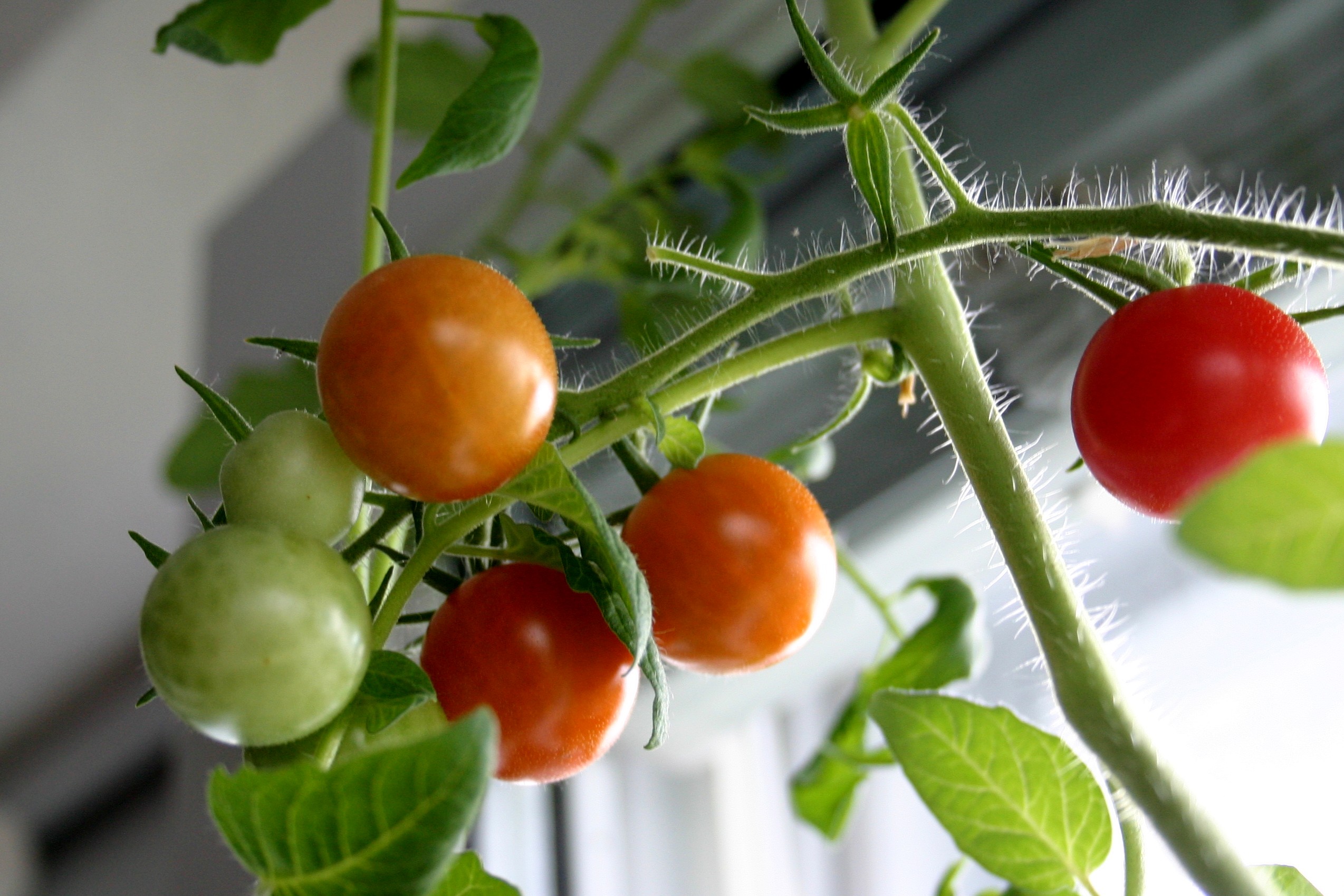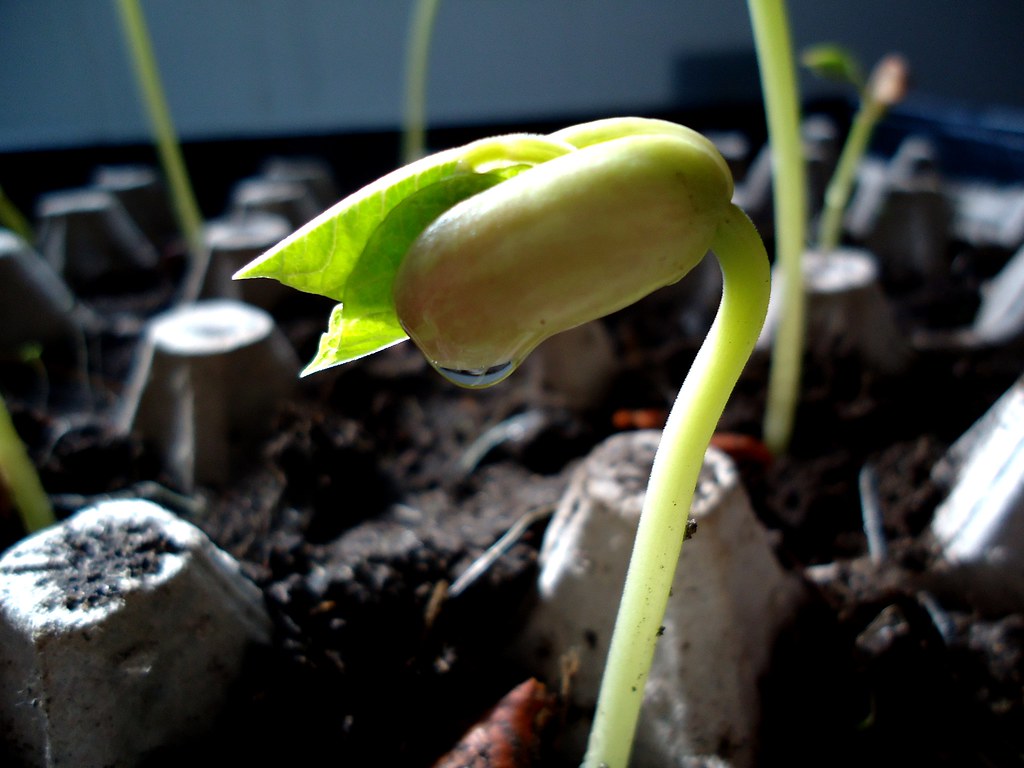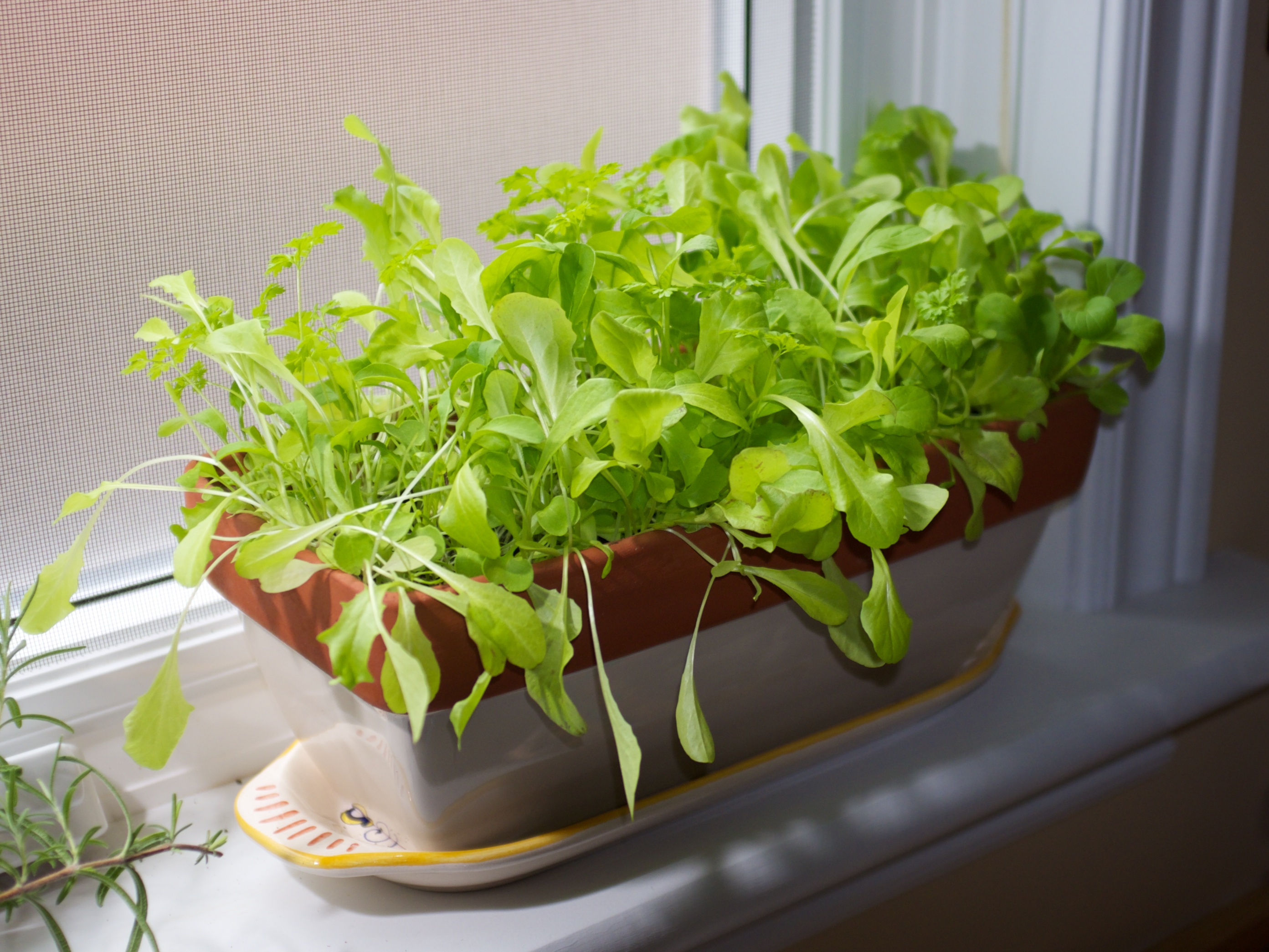 Let’s face it, not all of us have a lawn we can turn into food. Sometimes we just have to make do with what we can. Did you know that you can grow many different vegetables indoors? There are certain varieties that tend to flourish on windowsills or conservatories. So next time you may feel a bit defeated because you live in an apartment and cannot grow your own food, fret not, for there is a virtual cornucopia waiting to be grown right in your living room!
Let’s face it, not all of us have a lawn we can turn into food. Sometimes we just have to make do with what we can. Did you know that you can grow many different vegetables indoors? There are certain varieties that tend to flourish on windowsills or conservatories. So next time you may feel a bit defeated because you live in an apartment and cannot grow your own food, fret not, for there is a virtual cornucopia waiting to be grown right in your living room!
Even if you have a yard, the benefit to growing vegetables indoors is that some varieties can be cultivated year round. Also if you live in a cooler climate, there is no need to construct a greenhouse because you basically already live in one.

Tomatoes: There are plenty of varieties of tomato that can be grown indoors. Some do very well in hanging baskets. Varieties to plant in your indoor garden are, ‘Hundreds and Thousands,’ ‘Tumbler,’ ‘Maskotka,’ and ‘Garden Pearl.’ All of these varieties do very well in hanging baskets and can easily be hung in front of a window.

Radishes: While some root vegetables need too much depth to feasibly grow indoors, round radishes do not. They will work in most any container. Repurposed milk cartons do well for just a few seeds, just make sure to wash the container thoroughly prior to planting. Varieties that tend to do well inside are the fast-growing ones such as ‘Early Scarlet Globe,’ ‘Cherry Belle,’ and ‘Pink Beauty.’
Potatoes: Potatoes are especially easy to grow indoors. You can spout roots from any potato, but be sure to choose one with a lot of eyes. Place a few toothpicks in the potato to hold it up at the top of a container filled with water. Then place the container on the windowsill making sure the eyes are covered in water. It should sprout in about a week. You’ll want to choose a pot that is at least 12 inches deep. Place some pea gravel at the bottom of the pot for drainage and then fill the pot up about 1/3 of the way with soil. Place the potatoes root side down about 6 inches apart. As the plant grows you’ll need to add more soil. When the potato vine reaches the top of the pot, train them to go toward the window. Water them deeply. When small tubers begin to form on the vines your indoor harvest is ready for picking!

Mushrooms: You can grow a myriad of mushroom species indoors. In fact you can buy organic mushroom kits, with mycelium already spawned, online, and simply place them on your windowsill and water daily. But for the mushroom enthusiast, you need to start with a good sterile spawning medium and some spores. Organic rye seed works best for spawning shrooms, just make sure you are in a sterile environment to inject the grow bags with the spores. Place in a dark closest and make sure to maintain proper moisture. When the white mycelium starts to grow, usually around 2-4 weeks, you are ready to transfer to compost and grow your mushrooms. Oyster mushrooms do particularly well indoors and are a delightful treat.

Beans: Dwarf French Beans or one of the many other types of running beans are great for indoors. You can plant the beans in a relatively small pot on the windowsill or just below. When the beans sprout make sure you have fashioned a small trellis for them to climb into the window frame. The beauty of growing beans indoors is that not only will you get food, but the vines running up the window are aesthetically pleasing too!

Salad Greens: There are many different salad greens and leaf lettuce varieties that are great for indoors. Your indoor micro-green garden will also provide a beautiful sight. An important step to take is making sure that your pot has holes in it at the bottom for drainage, as greens are particularly susceptible to root rot. Make sure to keep the soil moist to the touch too. When the plants start to appear pinch off the new sprouts to keep the large healthy shoots growing. When they are tender enough, you can pick your salad right from the plant, one leaf at a time.
No comments:
Post a Comment